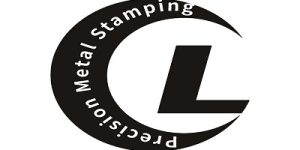Precision Brass Stamping
Get an instant quote for brass stamping parts. Make quick-turn prototypes and production part with our in-house tooling.
- All uploads are secure and confidential.

Custom Brass Stamping
Brass is a group of copper-zinc alloys that can contain varying amounts of zinc, as well as other elements like lead, aluminum, and iron. Due to its copper content, brass is conductive both thermally and electrically. Additionally, it offers good resistance to wear. Brass is considered the most machinable of all copper alloys due to the inclusion of lead, which improves its machinability.
At Chengli Hardware , we are dedicated to delivering excellence in every part we manufacture. If you require top-notch brass stampings, rely on our skilled team to produce high-quality parts within your timeframe and budget. With our in-house tooling process, we specialize in creating custom short run and medium run stamped parts to meet your unique needs.
Brass stamping at a glance
| Advantages | corrosion-resistant, low friction |
|---|---|
| Disadvantages | easy to oxidize or tarnish if not surface finish |
| Price | $$-$$$ |
| Lead time | For the samples, it will take 15 days to make the tooling; for mass production, depending on the quantity and complex, around 10 days to 25 days . |
| Tolerances | ISO2768-M is the standard tolerances |
| Thickness | 0.005-0.3 inch |
| Application | Terminals,Switch components,Electrical components |
Brass C26000
C26000 brass is a popular choice for metal stamping due to its corrosion resistance and non-rusting properties when exposed to the atmosphere, unlike steel and iron. The levels of zinc and copper in this brass alloy affect its conductivity, solderability, and hardness
| Tensile strength | 375-450 MPa |
|---|---|
| Yield strength | 140-170 MPa |
| Modulus of elasticity | 105 GPa |
| Elongation at break | 40-50% |
| Hardness, Brinell | 90-100 |
| Melting Point | 927-1050°C |
| Surface finish | electro-nickel plating, electroless nickel plating |
| Application | lamp fixtures, fittings, fasteners |
Brass 23000
C23000 is a red brass alloy composed of approximately 85% copper and 15% zinc. It is a type of brass that offers good corrosion resistance and high machinability.
| Tensile strength | 365MPa |
|---|---|
| Yield strength | 205 MPa |
| Modulus of elasticity | 109 GPa |
| Elongation at break | 40% |
| Hardness, Brinell | 100 |
| Melting Point | 1045 °C |
| Surface finish | electro-nickel plating, electroless nickel plating |
| Application | plumbing fittings, valves, and electrical components |
Metal Stamping Process for brass
Brass stamping is a metal forming process that involves shaping brass sheets or strips into specific shapes using a stamping press and a die. The process starts by creating a die or mold with the desired shape. The brass sheet or strip is then placed on the die and held in place while a stamping press is used to force the brass into the die, creating the desired shape.
Advantages of Brass Stamping
Corrosion resistance: Brass has excellent corrosion resistance, making it ideal for use in harsh environments or applications where parts may be exposed to moisture or chemicals.
Machinability: Brass is one of the most machinable metals, making it easy to form and shape into complex parts with tight tolerances.
Aesthetic appeal: Brass has a natural golden color and a polished appearance, which makes it an attractive choice for decorative and ornamental parts.
Electrical conductivity: Brass is a good conductor of electricity and is often used in electrical and electronic applications.
Durability: Brass is a durable material that can withstand high levels of wear and tear, making it ideal for use in heavy-duty applications.
Recyclability: Brass is a highly recyclable material, which makes it an environmentally friendly choice for manufacturing processes.

Top Brass Stamping Applications
Brass stamping is commonly used in a variety of industries, including automotive, aerospace, medical, and electronics, among others. It is used to create parts such as
- Terminals
- Lead frames
- Switch components
- Relay components
- Fasteners
- Fittings and Valves
- Electrical components
Finishes
Chenli Hardware’s brass stamping could be finished in a number of different ways. Below are some of the frequent finishes.
- Electro-nickel plating: a popular surface finishing technique for brass components. This process involves depositing a thin layer of nickel onto the surface of the brass part, which provides increased corrosion resistance, wear resistance, and improved appearance.
- Electroless nickel plating: a process used to deposit a nickel layer onto a substrate without using an electrical current. The plating occurs through an autocatalytic chemical reaction between the nickel ions and a reducing agent in the plating solution. This results in a uniform and corrosion-resistant coating that can improve the wear resistance, hardness, and lubricity of the substrate material

From Prototyping to Production
Chengli offers a wide variety of production volumes for sheet metal stamping, including:
Prototyping
Chengli offers metal stamping prototyping services for customers who need to test the viability of their product designs before moving into production. This service is ideal for customers who need to quickly iterate and refine their product designs.

Low Volume
For metal stamping projects with quantities up to 10,000 units, Chengli offers low-volume production services. Such service is perfect for customers who need smaller metal stamping orders to bridge the development of a product between prototypes and mass manufacturing, or who are looking for customized products.

High Volume
We can accommodate high volume metal stamping projects with quantities in excess of 10,000 units. Our production facilities are equipped to handle high volume production runs with precision and efficiency, ensuring that our customers receive cost-effective solutions.

Short Run Stamping
Short run stamping is often used for prototyping or for fulfilling small orders,typically ranging from a few hundred to a few thousand units.It is commonly used in industries such as automotive, aerospace, and electronics.

Long Run Stamping
Long run stamping is used for high-volume manufacturing applications where consistent quality, high efficiency, and low cost per part are critical.It often requires specialized equipment, automated production processes, and strict quality control measures to ensure that each part meets the required specifications.

Why Use Chengli's Metal Stamping Services?
Thanks to our highly efficient process, we provide quick, accurate tooling and unmatched short-run and long-run stamping.
Cost Advantage
Our metal stamping services are cost-effective due to our advanced manufacturing processes, efficient production techniques, and experienced engineering team. We are committed to offering competitive pricing without sacrificing quality or delivery times.
Manufacturing Capabilities
Our state-of-the-art facility is equipped with a wide range of high-speed stamping presses and other advanced manufacturing equipment. We have the capability to produce complex parts with tight tolerances, and we offer a variety of secondary operations to complete your parts to your exact specifications.
Quality Assurance
We maintain rigorous quality control standards throughout our entire manufacturing process to ensure that every part we produce meets or exceeds customer requirements. Our quality management system is certified to ISO 9001:2015, and we utilize advanced inspection equipment and techniques to verify the accuracy and consistency of our products.
See What Our Customers Say About Us
See what our satisfied customers have said regarding how we fulfilled their requirements.



Gallery of Brass Stamping Parts
We machine low-volume and high-volume production orders for customers in multiple industries: aerospace, automotive, defense, electronics, hardware startups, industrial automation, machinery, manufacturing, medical devices, oil & gas and robotics.



